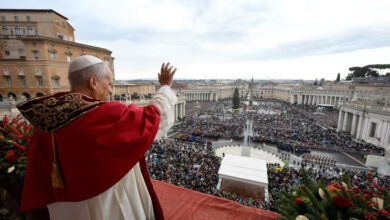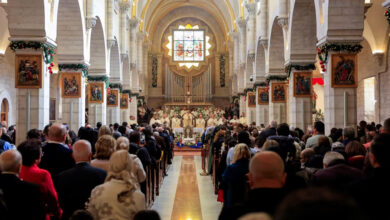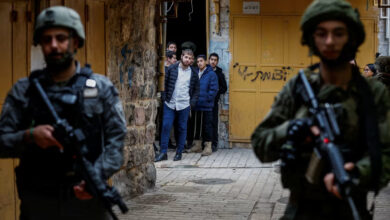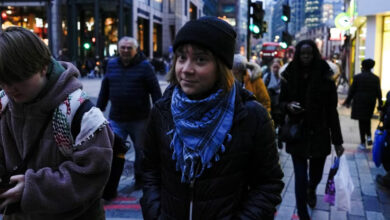Jerusalem–Israeli Prime Minister Benjamin Netanyahu on Monday told an inquiry into the Israeli naval raid on a Gaza aid flotilla that Turkey had ignored warnings and appeals "at the highest level" many days before the fatal clash.
Netanyahu was the first witness to testify to the state-appointed inquiry into the lethal raid at sea on 31 May, in which Israeli commandos killed nine Turkish pro-Palestinian activists, after boarding their vessel from a helicopter.
The clash took place before dawn in international waters off Israel, after the flotilla ignored repeated Israeli warnings not to continue to Gaza. The enclave is ruled by the Hamas Islamist movement and sealed off by a tight Israeli naval blockade.
"Beginning on 14 May, my office held contacts with the highest levels of the Turkish government," Netanyahu said.
"These contacts … were intended to prevent a confrontation with the Marmara flotilla, and they continued until the eve of the flotilla's arrival off Gaza's shores," he said.
"Despite our continuous diplomatic efforts, ultimately the Turkish government did not prevent the attempt by the Marmara to violate the naval blockade… It appears that (Turkey) did not see in the prospect of a clash between Turkish activists and Israel something that clashed with its interests…"
It was Netanyahu's most explicit public account of behind-the-scenes diplomacy that in the end failed to avert the clash.
Nine Turks were shot dead when Israeli commandos stormed the lead ship, Mavi Marmara. Israel says its commandos used live fire during the raid only after being attacked with clubs, knives and guns by activists who it says were clearly prepared for violence. Israel made video recordings of fighting on deck.
The raid sparked a world outcry and almost ruptured Israel's relations with once-close Muslim ally Turkey.
It also pushed Israel to ease restrictions of its Gaza blockade, which is aimed at preventing the territory's rulers Hamas from increasing their arsenal but also aggravates the privations of 1.5 million mostly aid-dependant Palestinians.
The Jerusalem-based inquiry is led by retired Supreme Court judge Jacob Turkel and includes two foreign observers.
It is investigating the circumstances surrounding Israel's handling of the encounter with the six-vessel, Turkish-owned aid flotilla that was trying to bring aid to Gaza, and cast a spotlight on its blockade in a direct challenge.
Netanyahu said Israel could not have allowed the ships to breach its cordon, which it insists is necessary to keep weapons including long-range rockets out of the hands of Hamas, the Palestinian Islamist movement backed by Iran which runs Gaza.
"The state of Israel and the IDF (Israel Defence Forces) operated according to international law," he said. "As prime minister I can't ignore Hamas as a threat to Israel's existence."
Netanyahu's spokesman Nir Hefetz told reporters that this inquiry was not an "anti-Israel body," unlike the UN Human Rights Commission under judge Richard Goldstone into Israel's devastating Gaza Strip offensive in January 2009.
Israel has refused to cooperate with the Goldstone probe.
Hefetz said the Turkel commission "attests to the way in which the state of Israel, at the highest of international standards, is prepared to show its cards and say 'We have nothing to hide.'"
The United Nations is conducting two inquiries of its own into Israel's high-seas interception.
A panel formed by UN Secretary-General Ban Ki-moon and headed by former New Zealand Prime Minister Geoffrey Palmer is due to meet for the first time on August 10. It will include one Israeli and one Turkish member.
A second probe, by the UN Human Rights Council, will be run independently and without Israeli cooperation.




